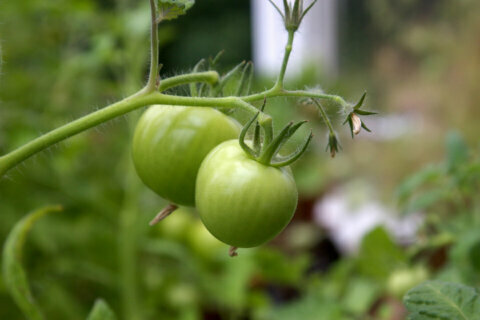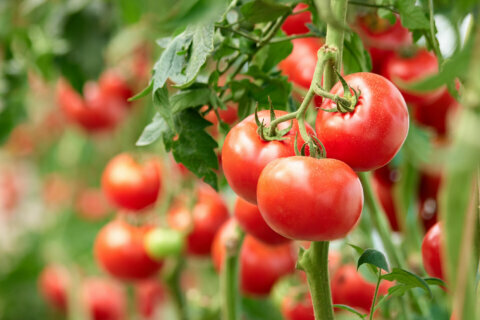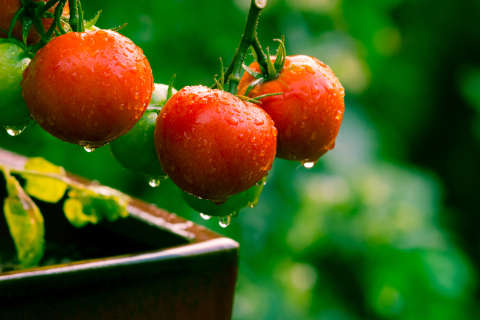Don’t be fooled by this sunny D.C.-area weather. It’s still only April.
Sunny days do not mean summer-planting time
Matt in D.C. writes: “I have planted way more starts than I can handle. My sunroom is getting packed, and I’m dying to put things in the ground outside. Is it too early to plant basil, sweet potatoes or flowers (specifically bee balm and purple coneflower)? Let me know what you think.”
I think it’s still April, Matt — and early April at that!
Hopefully Thursday and Friday nights’ chilly lows dropped a little reality into your pockets — but I feel your pain.
Summerlike days, social isolation and fear of running out of toilet paper have us all feeling a little squirrelly, but nighttime lows in the suburbs are predicted to drop into the 30s next week; and those temps can kill or severely injure tropical plants, such as basil and sweet potatoes. And the temps in D.C. will be too cold, as well. Just give them some food and good light and wait for May.
Don’t help April be the cruelest month
Stay thy hand, Matt — or you will learn why April is called the cruelest month!
If you’re itching to plant, this is the perfect time to grow cool-weather crops, such as lettuce, spinach, kale, peas and broccoli.
They won’t mind upcoming nights in the very low 40s. That is exactly what is predicted for the heat sink of D.C., which is always warmer than the surrounding suburbs. And next week could drop below freezing in the area.
And it’s not just “freezing” that you need to be worried about. Subjecting tropical plants, such as tomatoes, peppers, sweet potatoes, cucumbers, and annual herbs, such as basil, to temperatures in the 30s can set them back by a month. Or just plain kill them.
Yes to flowers; no to yams
Cold-sensitive plants — such as basil (a real drama queen) and sweet potatoes, whose vines are often the first to die on a chilly September night — could die if you put them on the ground now.
Note that I said chilly and not frosty. Tropical plants have no sense of humor about nighttime temps in the 30s, especially when they are young and small.
Flowers are another story. Because you are in the heat sink of the city, perennials, such as beebalm (aka monarda) and coneflowers, are well-adapted to chilly nights. You can plant them outside now without fear.
How much wood would a wood chip chip if a wood chip could chip wood?
Sylvia in Falls Church, Virginia, writes: “I have a large 2-year-old pile of oak tree stump chips, still with visible chips. Can it be used for garden mulch, or just for mulching around bushes? Would it be more usable for garden mulch in another year?”
Interesting question, Sylvia. What you have is considered “arborist wood chips,” which is far superior to the dyed wood trash sold at big-box stores that may have originally been insecticide-soaked pallets and construction debris.
I would not use your chips in the garden*, but a 1-inch layer should be safe to use around shrubs, as long as the mulch doesn’t actually touch the plant.
But if you choose to wait another year, the entire pile should become good-quality compost, especially if you mix in spent coffee grounds to move the composting process along. And then your garden plants would love it!
*Fresh wood chips of any kind are an inappropriate mulch for veggie gardens. Use compost, pine straw or shredded leaves instead.
Hats off to Montgomery County
As reported by the county’s Department of Environmental Protection, Montgomery County, Maryland, has banned the use of all chemical herbicides, including the notorious and nefarious “weed and feed.”
To its further credit, however, the use of natural, pre-emergent herbicides, such as corn gluten meal and natural broad-leaf herbicides, such as Iron-X and horticultural vinegar, are permitted.
To briefly quote from its recent release, “Exposure to certain pesticides has been linked to serious health conditions in children including pediatric cancers, decreased cognitive functioning and behavioral problems. Exposure for adults can cause Parkinson’s disease, diabetes, leukemia, lymphoma, lupus, rheumatoid arthritis, dementia, Alzheimer’s disease and many cancers.”
Bravo, Montgomery County.
Mike McGrath was editor-in-chief of ORGANIC GARDENING magazine from 1990 through 1997. He has been the host of the nationally syndicated public radio show “You Bet Your Garden” since 1998 and WTOP Garden Editor since 1999. Send him your garden or pest control questions at MikeMcG@PTD.net.







